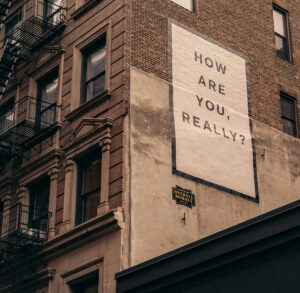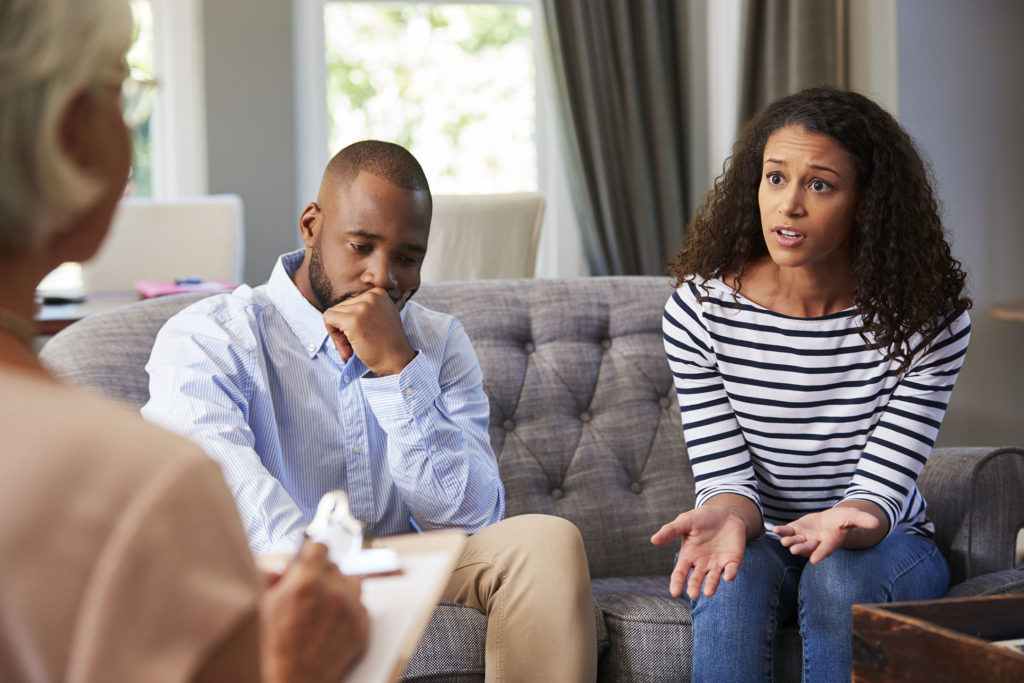The Importance of Caring for Unprocessed Grief
By Davis Briscoe, Senior Associate Counsellor
 In our Western society, grief is highly misunderstood — partly because we have assumptions about what it should look like. Some common misconceptions about grief are:
In our Western society, grief is highly misunderstood — partly because we have assumptions about what it should look like. Some common misconceptions about grief are:
1. Grief and mourning are the same experience.
2. It is best to move away from grief and mourning instead of toward it.
3. There is a predictable and orderly progression to the experience of grief.
4. Tears of grief are only a sign of weakness.
5. The goal is to “get over” your grief.
We talk about it as if it has a time limit and that there is a certain way to grieve “properly.” However, everyone’s journey with grief is different.
WHAT IS GRIEF?
So what is grief? In the simple yet profoundly deep words of grief ritualist and educator Francis Weller, “It is our unexpressed sorrows, the congested stories of loss, that when left unattended, block our access to the soul. To be able to freely move in and out of the soul’s inner chambers, we must first clear the way. This requires finding meaningful ways to speak of sorrow.”
In the West we have lost our cultural knowledge about how to grieve due to colonization, migration and other social phenomena. It can therefore take support and guidance to relearn how to be with this very natural part of our human experience. It’s through rediscovering these “meaningful ways to speak of sorrow” as Francis Weller puts it, in counselling sessions or support groups, that we can re-emerge as more healthy humans on this planet.
WHAT IS UNPROCESSED GRIEF AND WHAT IS ITS IMPACT?
When grief is not processed — meaning when it hasn’t had the space to be felt, held and released — it can show up in many ways, such as isolation, numbness, directionless anger or rage, or projecting (“spilling your pain”) onto your partner which can create deep disconnection in relationship. When it goes untended for long periods of time, it can also turn into alcoholism, fitness or body obsessions, chronic pain, chronic illness, and addiction.
One of those most difficult things about unprocessed grief is that it is often an unseen force — which means it can go misinterpreted or misunderstood for long periods of time. This misunderstanding can cause much emotional turbulence, particularly within families. However, when one family member has the courage to unpack their grief (which is sometimes generations deep) new and meaningful conversations and connections can finally open.
DOES GRIEF HAVE AN END? WILL IT ALWAYS FEEL THIS HARD?
A common myth about grief is that it should end or become less intense after certain milestones – like a funeral, a hard-won court case, or the 1-year anniversary of the death of a loved one. The actual truth is that grief lives on… and so do we!
Grief doesn’t have to be an end, but it can be a beginning.
And what kind of beginning? As Francis Weller, so aptly states: “Grief work offers us a trail leading back to the vitality that is our birthright. When we fully honour our losses, our lives become more fully able to embody the wild joy that aches to leap from our hearts into the shimmering world.”
This quote feels especially true to me as a counsellor. For 17 years, I have held space for clients with all kinds of grief and I’ve seen lifetimes of pain dissolve — sometimes in mere minutes!
When clients take the time to take their unprocessed grief, and process it in a place that is guided at a pace that feels right, everything can shift.
For instance, I worked with a former addict and workaholic named Joe*. He came to me to work through his addictive tendencies, and what we uncovered was decades old grief about two significant losses in his life – the death of a friend and the death of a work colleague – both of which he had been blaming himself for.
Within seconds, what seemed like a lifetime of shame dissolved as he wept for that part of himself that believed he was never good enough for not being able to save them. He was able to find compassion for himself and let go of the belief that these deaths were his fault.
From that moment on, Joe was able to make many healthy changes in his life because he was no longer carrying the burden of unprocessed grief.
Similarly, another client Susan* had lost two siblings within a decade and now struggled with chronic pain. Forty-five years later, while working with me, she realized there was no template for how to grieve in her family.
As we made space for her grief, Susan was able to grieve for her siblings and be supported in the pain and confusion of what her younger teenage self had to endure from these losses. Susan began to feel a connection to life and death that she had never experienced before. She expressed that since she had opened the doors to her grief, her chronic pain (that she had endured for decades!) had completely disappeared.
Most importantly, Susan recognized that her journey with grief didn’t end with one big cry or emotional release. Instead, the grief she carries in her heart had, over time, become more manageable. This led her to become more connected to herself, her husband and her family. In the process she also discovered her love of art and a passion for getting out into nature! She marvelled at the power of letting her grief move through her — and how it eventually led to so many beautiful gifts.
I’ve witnessed people stand in their power after learning how to express anger in healthy ways and re-emerge in their lives as more present parents, lovers, and community members. I’ve witnessed and supported clients to find their voice — perhaps a voice that was once taken from them by the trauma of childhood experiences.
Within the sacred holding of grief, I’ve seen people step into themselves, their relationships, and their lives… sometimes for the very first time.
CONCLUSION
Grief can be part of our day-to-day lives and it doesn’t always have to be painful. We learn the language of our own grief and start to walk with it in new ways. It can teach us boundaries and balance; it can teach us how to ask for and receive support; it can open us to the precious beauty of life; and it can equip the children and youth in our society with a map to navigate the trials and tribulations of life because they are witnessing the adults in their lives do this, too!
Taking the time to process unprocessed grief can lead to so many positive things — healthy adults, healthy communities, and hopefully a healthier world.
** Names changed for confidentiality.
—–
 If you are looking for support with your grief, we invite you to learn more about Davis, and book a free 15-minute phone consultation here.
If you are looking for support with your grief, we invite you to learn more about Davis, and book a free 15-minute phone consultation here.
